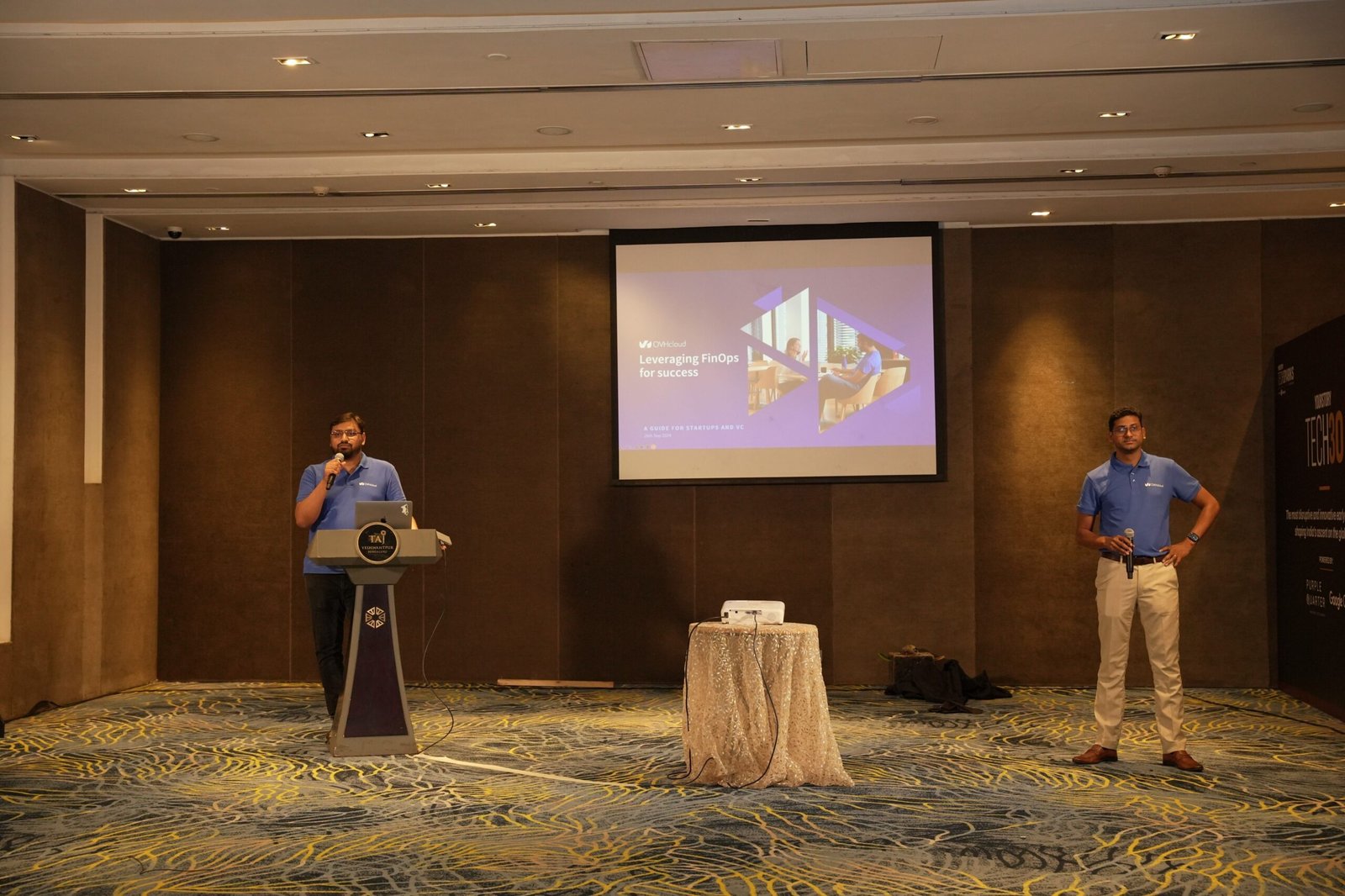Startup
IPO-bound CIEL HR acquires Thomas Assessment, People Metrics to expand talent assessment portfolio

Human resources and staffing solutions firm CIEL HR Group has acquired Mumbai-based firms Thomas Assessment Private Limited and People Metrics Private Limited, which specialise in talent assessment.
These acquisitions enhance CIEL HR’s capabilities in the Indian talent assessment and development market while broadening its presence across the SAARC region, strengthening its geographic reach and service portfolio.
Thomas Assessment, backed by 43 years of global expertise, specialises in psychometric tools for behavioural, cognitive, personality, and emotional intelligence assessments, while People Metrics provides comprehensive assessment solutions.
“This (Thomas Assessment) is one important strategic acquisition which strengthens our presence in the assessment and development sector of the HR value chain. We also strengthen our talent assessment and development solutions and gain entry into the SAARC region, with Thomas,” said K Pandiarajan, Executive Chairperson and Director of CIEL Group, during a media briefing.
The Bengaluru-based firm has acquired a 51% stake in Thomas Assessment through an undisclosed cash and share swap deal, with plans to fully acquire the HR services company over the next 18 months, according to Pandiarajan.
“Since our inception, we have focused on elevating the standards of talent assessment and organisation development in India. I am excited to see us become a part of the CIEL HR Group taking our product suite to the large clientele of CIEL HR Group and unleashing our synergies,” said Sundara Rajan, Founder and Director of Thomas Assessments and People Metrics.
These two acquisitions follow the Bengaluru-based company’s purchase of another Mumbai-based upskilling startup Courseplay for $2 million in a mix of cash and share swap.
Before these acquisitions, the firm had bought Chennai-based IT staffing company Aargee Staffing Services in December 2023 and talent assessment company Jombay in December 2022.
CIEL HR Group, which is gearing up for an initial public offering (IPO) in the fourth quarter of the current fiscal year, is backed by prominent investors such as Sridhar Vembu of Zoho, CK Ranganathan of CavinKare, and NS Rajan, the former group Chief Human Resources Officer of Tata Group
The Bengaluru-based company clocked a consolidated revenue from operations of Rs 1,085 crore for FY24, up 36% from Rs 799 crore in the previous fiscal year. Additionally, its profit after tax for FY24 amounted to Rs 10.8 crore.
“We have been growing at around 40% over last year as of the six months of this past year. We are well on our way to meeting our commitments to the shareholders,” remarked Pandiarajan.
CIEL HR Group offers a comprehensive range of technology-driven human resources solutions that span the entire employee lifecycle, influencing all aspects of HR management. As of June 30, 2024, the company operates from 92 offices across 43 locations and has served 3,958 clients across various sectors.
Startup
Mastering Cloud Costs: FinOps Strategies for Startup Growth

At TechSparks 2024 in Bengaluru, a masterclass on ‘Leveraging FinOps for Success: A Guide for Startups and VCs’ shed light on a crucial yet often overlooked aspect of startup operations. Led by Satyam Santosh, Startup Program Lead – APAC at OVHcloud, and DVS Shiv Kumar, Solutions Architect at OVHcloud, the session provided invaluable insights into managing cloud costs effectively.
The importance of FinOps for startups cannot be overstated. As Santosh pointed out, “Startups really need to understand, especially early-stage startups when you have a dearth of money in your bank account. You need to look at cloud costs and understand how you should be able to control the costs that you’re incurring on your infrastructure.”
The masterclass began with a startling revelation: companies often overspend on their cloud budgets by 26%. This statistic underscores the critical need for startups to adopt FinOps strategies from the outset. FinOps, or Financial Operations, involves understanding and optimising cloud costs to ensure financial efficiency and accountability.
Kumar explained the core of FinOps: “The first step in FinOps is to identify and understand all cloud costs and services being consumed. Are these services that I am consuming really needed for my application, or can I optimise it further?”
Common pitfalls for startups
Both Santosh and Kumar highlighted several key pitfalls that startups often encounter:
- Hidden Costs: While direct costs like subscription fees and implementation are obvious, hidden costs such as bandwidth, data transfer, and vendor lock-in can significantly impact a startup’s budget.
- Data Transfer Costs: These can escalate quickly, especially for startups dealing with large amounts of data. The speakers recommended using tools like Cloud Easier to estimate these costs before deployment.
- Storage Costs: With the increasing amount of data being stored, any operation performed on this data can significantly affect cloud costs. Tools were suggested to help startups estimate and optimise storage costs.
- Vendor Lock-in: This was emphasised as a major concern. Santosh shared a cautionary tale: “We have a fantastic example from one of our startups from the France ecosystem. It was an edtech company… It actually lost the deal with the French government because the kind of code and architecture it had was so deeply ingrained in the cloud service provider it was using.”
Strategies for success
To avoid these pitfalls, the masterclass offered several key strategies. First, startups should integrate FinOps responsibilities into existing teams rather than creating a separate department, ensuring a more holistic approach to cost management. Simultaneously, creating a culture of cost awareness is crucial, with employees trained to be accountable for the services they use.
The speakers emphasised the importance of adopting cost optimisation tools like Cloud Easier, Cloud Mercato, and Harley to compare providers and optimise costs effectively. They also stressed the need to optimise cloud usage by right-sizing instances and leveraging reserved instances to mitigate high computing costs.
Finally, implementing chargeback processes to map cloud bills to different departments was recommended to ensure financial accountability across the organisation.
Leveraging cloud provider benefits
The speakers also emphasised the importance of avoiding over-reliance on managed services and adopting open standards to maintain flexibility and avoid vendor lock-in.
Interestingly, the masterclass highlighted how some cloud providers, like OVHcloud, offer free bandwidth, which can significantly reduce monthly costs. “There are very few cloud services in the market that actually give you totally free bandwidth,” Santosh noted, emphasising how this can lead to more predictable monthly bills.
The session concluded with advice for startups to leverage the benefits available through cloud service provider startup programs. These programs often provide credits, technical support, and even access to funding opportunities, which can be crucial for early-stage startups managing cloud costs.
In an era where cloud services are integral to most startups, mastering FinOps is no longer optional—it’s a necessity. As this masterclass at TechSparks 2024 demonstrated, understanding and implementing FinOps strategies can be the difference between a startup that struggles with unexpected costs and one that scales efficiently and attracts investment. For founders and VCs alike, the message is clear: FinOps is a critical component of startup success in the cloud-first world.
Watch the full video here.
Startup
Andhra eyes Rs 10 lakh Cr investment in clean energy, net zero by 2047

Andhra Pradesh is eyeing a Rs 10 lakh crore investment in the clean energy sector in the state as it unveiled a new policy that incentivises investments across solar, wind and round-the-clock renewable energy projects to achieve net zero carbon emissions by 2047.
Andhra Pradesh Chief Minister N Chandrababu Naidu unveiled the AP Integrated Clean Energy (ICE) Policy that envisages incentives ranging from hassle-free land acquisition at reasonable price to power subsidy to certain sectors.
The ICE Policy will involve a proposed investment outlay of Rs 10 lakh crore, creating direct and indirect employment for 7,50,000 workers, the policy document said.
The policy looks to leverage the state’s vast renewable energy potential across wind, solar and hybrid sources, storage capabilities through pumped storage projects, a long coastline, six operational ports (with four under development) and skilled manpower availability as it pivots energy transition.
The Andhra Pradesh government is committed to promoting generation from renewables by creating a more conducive policy and investment framework to spur competition and private participation in the sector while maintaining a balance in the interests of all stakeholders, it said.
The police will aid in setting up projects that generate electricity from abundant sunlight and wind energy as well from pump-storage projects on water bodies.
Andhra Pradesh is targeting 78.5 gigawatts of solar capacity, 35 GW of wind energy, 22 GW of pumped storage and 1.5 million tonnes per annum of green hydrogen manufacturing capacity. It is also looking to set up 25 GWh of battery energy storage as well as projects to manufacture ethanol and biogas from biomass and 5,000 EV charging stations.
It is also looking at 25-30 GW of cleantech manufacturing that will create jobs for the local population.
To develop relevant skills in our workforce, the University for Green Energy and Circular Economy (UGC) will be established in collaboration with the government of India and industries under PPP (Public-Private Partnership) Mode, it said.
Clean Energy Knowledge & Skill Development Center (CEKSDC) will be formed to serve as a knowledge and training hub and enable partnerships with academia, think tanks, and industry.
The incentives in the policy include concessional land lease for all clean energy projects as well as renewable energy component manufacturing units. Stamp duty will be waived for mini-hydro, pump storage projects, battery storage, biofuels and manufacturing units while capital subsidies provided for battery storage, green hydrogen, biofuels and renewable energy manufacturing projects.
Electricity duty and other open access charges will be waived
Other incentives include a capital subsidy for electrolyser and biofuel projects, reimbursement of net state GST for 5 years, waiver of ED and reimbursement/waiver of intra-state transmission charges.
Capital subsidy of up to 25% is being offered for renewable energy manufacturing projects as also reimbursement of net state GST, off-take guarantee, and power subsidy of Re 1 per unit for 5-10 years.
New and Renewable Energy Development Corporation Of Andhra Pradesh (NREDCAP) will be the state nodal agency facilitating access to land parcels, and will support power power evacuation and open access, help in availing central government incentives, facilitate relevant approvals and clearances and support capacity allocation.
The policy will be operational for five years.
The ICE policy is in line with Andhra Pradesh’s ambitious target of net zero carbon emission by 2047, the document said, adding with renewed efforts under the policy, Andhra Pradesh will attract investment for the next 5 years, scaling up its renewable energy capacity multifold and claiming its rightful place as a leading state in the energy transition.
Startup
iD Fresh turns profitable, clocks 16% rise in FY24 revenue

Packaged foods seller iD Fresh turned profitable in FY24, earning a net profit of Rs 4.56 crore against a loss of Rs 32.8 crore incurred in the previous fiscal year.
The company, which also sells idli and dosa batter as well as frozen food like parathas and chutneys, posted a 16.3% year-on-year (YoY) increase in its operating revenue to Rs 557.84 crore in FY24, compared with Rs 479.29 crore earned in the previous year, filings with the Registrar of Companies showed.
Improvements in the topline were matched by a rise in total expenses, which rose 8% YoY to Rs 558.2 crore in FY24. This was primarily due to rise in the cost of materials, employee benefits expenses, and other expenses including advertising costs.
The brand’s ready-to-cook batters, its largest segment, clocked a 24% YoY increase in sales to Rs 237 crore while the sales of its second-largest selling segment, parotta, increased by 10% YoY to Rs 183 crore.
Bengaluru-based iD Fresh recently announced the company’s foray into the spices market with the launch of three spice variants—red chilli powder, garam masala, and sambar powder.
It had earlier told YourStory about the company’s plans to expand its presence in north India where it does not have a strong hold yet, starting with Delhi and expanding to Chandigarh and Agra.
-

 Startup Stories1 year ago
Startup Stories1 year agoWhy Millennials, GenZs Are Riding The Investment Tech Wave In India
-

 Startup Stories1 year ago
Startup Stories1 year agoStartups That Caught Our Eyes In September 2023
-

 Startup Stories1 year ago
Startup Stories1 year agoHow Raaho Is Using Tech To Transform India’s Fragmented Commercial Trucking
-

 Startup Stories11 months ago
Startup Stories11 months agoMeet The 10 Indian Startup Gems In The Indian Jewellery Industry’s Crown
-

 Crptocurrency8 months ago
Crptocurrency8 months agoLither is Making Crypto Safe, Fun, and Profitable for Everyone!
-

 Startup Stories1 year ago
Startup Stories1 year agoHow Volt Money Is Unlocking The Value Of Mutual Funds With Secured Lending
-

 E-commerce1 year ago
E-commerce1 year agoTop Online Couponing Trends To Watch Out For In 2016
-

 Startup Stories1 year ago
Startup Stories1 year agoWhy Moscow-Based Kladana Considers Indian SME Sector As The Next Big Market For Cloud Computing




